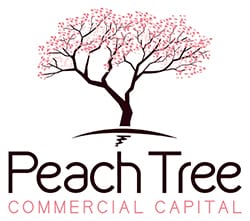With Q1 behind us and Q2 well underway, it’s time for a check-in with the state of commercial real estate so far this year. While there are some definite national trends, conditions vary from region to region with some regions bucking those trends. Understanding the underlying causes can help you determine where to find pockets of opportunity.
There’s still potential for the Fed to drop rates in the next two quarters or, at least, keep from hiking them. That could signal a round of refinancing for the massive number of CRE loans coming due this year. However, some have predicted high default rates and pressure on banks, which affects new loan availability.
So, without further ado, let’s take a look at what’s hot and what’s not in CRE right now. Then, we’ll dive into some considerations when it comes time to find a lender. Whether you’re ready to make investments or want to reposition your current holdings, keep reading to find out where your best bets could lay.
Hot: Industrial
The best-performing CRE sector by far is industrial, still riding the boom from lockdown e-commerce. The uptick in onshoring is ensuring that demand for warehouse properties remains high. International political concerns have encouraged retailers to keep products close to home and avoid potential supply chain issues.
Industrial is a great choice this year for property investors looking to onboard new properties or build CRE. Look to lenders like the SBA for funding as administration caps keep interest rates from reaching skyscraper heights. A variable rate option will drop your rate automatically in the event the Fed decides to lower the Prime Rate later this year.
Hot: Hotel
Hotels bounced back well after the release of travel restrictions and are holding steady as consumers continue to spend. Most of that stability is due to incoming international visitors and corporate travel. However, midrange hotels face pressure from short-term rental options like Vrbo and AirB&B. Political issues in some areas of the country have driven travelers elsewhere.
The hotels positioned to do well in 2024 are the luxury resorts and high leisure appeal destinations. Properties near major attractions like Disney World are likely to stay strong, even for class B and C holdings. Now could be the right time to upgrade hotel properties, depending on location. Asset-based loans allow for ARV estimations, which can supply capital for investments plus renovations.
Still Warm: Retail
The trends in retail from 2023 have continued into this year with little change. The sector continues to pivot to emphasize e-commerce, and those companies with the flexibility to do so are surviving. Smaller retailers are doing better in light of an increased demand for boutique experiences and an increase in small retail space availability. Big retailers tied to malls, however, aren’t winning 2024 so far.
Retail in some areas will be impacted by the election later this year, so watch for fluctuations in consumer confidence and spending. For retail properties, talk to your broker about acquisition loans. Acquisition loans have the benefit of shorter terms, so you’ll be free of payment obligations before there’s a big change in rates.
Still Warm: Multifamily
Multifamily, overall, isn’t doing poorly, but success in this sector is highly influenced by location. The current conditions in the housing market are, for the most part, driving consumers toward rentals. Job rates greatly affect multifamily properties since renters have more flexibility to migrate to better employment areas than homeowners.
The multifamily industry must strike the right balance between vacancy and demand, and with just under a million units entering the market this year, they won’t be absorbed as readily. Economists are predicting below-average growth but not much below 2023 levels. Southern suburbia will likely see the most positive growth this year. FHA loans are your best bet for financing multifamily property. Working with a broker will make the sometimes lengthy process of getting approved much smoother, but the sooner you apply, the better.
Not So Hot: Office
Falling asset values, higher interest rates, and plummeting demand make for a gloomy outlook for office properties. This downturn is especially prominent in cities with a strong focus on tech since many workers have transitioned to home office work. Offices with high-security demands such as healthcare, banking, and research tend to have lower vacancy rates.
There’s still opportunity within office real estate if you know where to look. Smaller, higher-class properties are weathering the storm much better than class B and C spaces. Try looking at private loans if you’re interested in funding an office purchase. Lenders specializing in office loans may be able to offer deals you won’t find at the bank. Your broker can help you connect, which brings us to our final update for this article.
Finding A Lender
The so-called “extend and pretend” loan strategies that have postponed maturities, are not a sustainable option, perhaps even contributing to a future economic disaster. Nearly one trillion dollars in bank loans will come due this year, and a wave of delinquencies is poised to hit banks hard. Since banks hold more than half of the nation’s CRE loans, this is a major concern for investors.
While most of the country’s large banks will be able to survive the storm, smaller banks will feel the impact. This means, that if you’re looking to invest in office properties with a small bank CRE loan…you might want to re-evaluate your strategy. On the other hand, loans from government-backed lenders and life insurance lenders appear to be where opportunities lie if you qualify.
It would be nice to say there’s one solid strategy to guarantee success, but life is rarely so simple. Despite some interesting national trends, it’s best to evaluate the municipal level to get a real sense of the best investment strategies in the local market. The ideal lender for your project is out there, waiting for a connection. Our team is ready to support you by sourcing the best CRE funding for your business venture.

